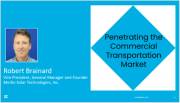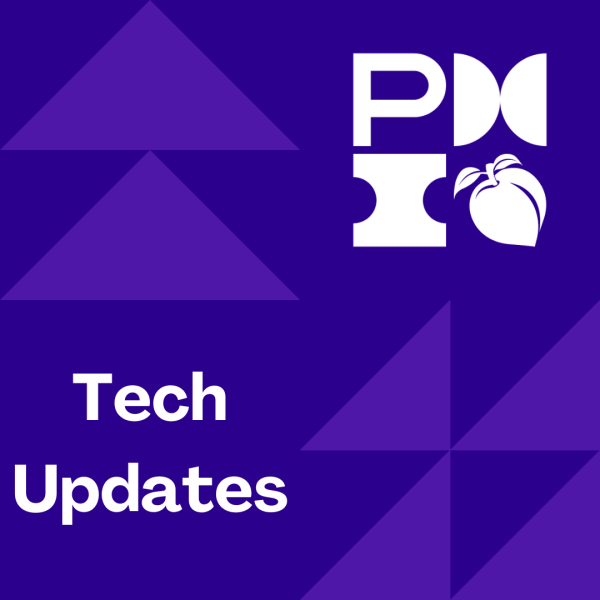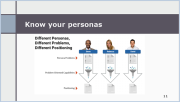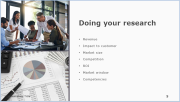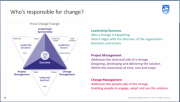Written by: Catherine Binuya, Ed.D.
Presentation Overview
Merlin Solar, founded in 2012, is now a world-wide leader in solar solutions for mobile, transportation, and grid-tied applications. Their products are seen in applications that span commercial transportation, trucking, marine and the military.
The company stress tests their products in all seven continents under vastly different weather conditions and latitudes to enhance performance capacity levels. Merlin Solar operates out of the U.S., Thailand, the Philippines, and India. Their current market valuation is more than $100 million dollars.
Robert Brainard is the Vice President, General Manager, and Co-founder of Merlin Solar. As the co-inventor of Merlin Solar’s innovative interconnected technology, he also manages the company’s IP portfolio of 75 US and international patents. Their patents include how their solar grids are made, special features, and how grids are attached for application.
Robert himself holds over 50 patents and has written for numerous publications in the fields of solar technologies, optical and telecoms components, materials chemistry, and high TC superconductors.
Takeaways
- Unique patented design overcomes the rigidity and brittleness of traditional solar panel construction and is lighter weight because it eliminates the need for a glass panel overcoat.
- Their designs allow the company to manufacture portable, mobile panels such as those carried by soldiers to set up in mobile command posts and have been used in emergency disaster relief events.
- Their copper webbing design creates more electrical connections (up to 2000+), greater structural integrity, provides more protection.
- Real-life applications address challenges of generating and storing solar energy under scattered light, shady, hazy, night-time conditions as well as a wide range of extreme climates.
- The company’s innovative design perspective begins with the consumer’s specific needs in mind, “what problem are we solving for the client?”
- Merlin Solar’s business model focuses on business operators to achieve a faster path to market.
Next Event
Join us at the next PMI Atlanta Architectural, Engineering, & Construction (AEC) forum on Tuesday, March 12, 2024
Register at www.pmiatlanta.org/events/event-calendar


